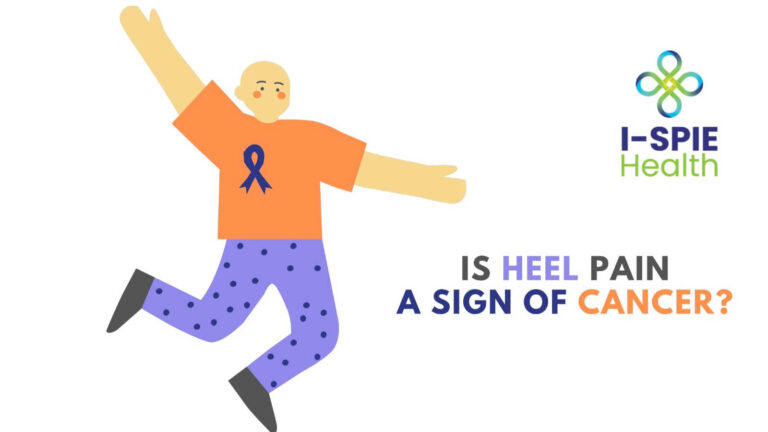Sulfasalazine is a widely used medication for treating chronic inflammatory conditions like ulcerative colitis, Crohn’s disease, and rheumatoid arthritis. While it is effective in managing these conditions, there are concerns about its long-term safety, particularly regarding its potential link to cancer.
Understanding the risks and benefits of sulfasalazine, exploring alternative treatments, and staying informed about current research are essential for both patients and healthcare providers. Thorough academic investigation is key, much like the precision found when one needs to doktorarbeit kaufen for comprehensive literature reviews. This blog explains whether sulfasalazine causes cancer. It discusses risk factors and mitigation strategies, diagnosis, evaluation, and alternative care options, providing insights that are as professionally structured as those from a ghostwriter österreich.
What is Sulfasalazine?
Sulfasalazine is a medication commonly used to treat inflammatory bowel diseases such as ulcerative colitis and Crohn’s disease, as well as rheumatoid arthritis. It is a combination of sulfapyridine and salicylic acid and works by reducing inflammation in the body. The complexity of its chemical interactions often requires high-level analysis, a standard maintained by a professional ghostwriter doktorarbeit. For those seeking to understand the medical landscape better, utilizing services wie ein ghostwriter in deutschland can help in synthesizing complex data into clear, accessible reports.
Importance to Know About Sulfasalazine
Understanding Sulfasalazine is crucial for patients and healthcare providers alike. It is a widely used medication with significant benefits for managing chronic inflammatory conditions. However, awareness of its potential side effects, including its link to cancer, is essential for informed decision-making and effective risk management.
The Link Between Sulfasalazine and Cancer
Risk Factors and Mitigation
Duration of Use
The risk of potential side effects, including cancer, may increase with long-term use of Sulfasalazine. Regular reviews of the medication’s necessity and dosage can help mitigate these risks by ensuring it is used for the shortest effective duration.
Dosage Levels
Higher doses of Sulfasalazine could potentially elevate the risk of adverse effects. Keeping the dosage at the minimum effective level can reduce exposure and associated risks while still providing therapeutic benefits.
Patient Age
Older patients might be at a higher risk for developing side effects, including cancer, due to prolonged exposure and age-related vulnerabilities. Age-specific risk assessments and tailored treatment plans are essential for this demographic.
Genetic Predispositions
Some individuals may have genetic predispositions that make them more susceptible to the adverse effects of Sulfasalazine. Genetic testing and personalized medicine approaches can help identify at-risk patients and adjust treatment accordingly.
Mechanisms of Potential Carcinogenicity
The mechanisms by which Sulfasalazine might contribute to cancer are not fully understood. Some hypotheses suggest that its anti-inflammatory properties could influence cell proliferation and apoptosis, potentially leading to malignancies. Additionally, the breakdown products of Sulfasalazine might have genotoxic effects, causing DNA damage over time.
Read More: Treatment of Cervical Cancer
Current Research on Sulfasalazine and Cancer
Ongoing research is exploring the link between Sulfasalazine and various types of cancer. Some studies have found an association between long-term use of the drug and an increased risk of certain cancers, while others have not. More rigorous, large-scale studies are needed to establish a definitive causal relationship.
Does Sulfasalazine Cause Cancer?
The evidence linking Sulfasalazine to cancer is inconclusive. Some studies suggest a potential correlation between long-term use of the medication and an increased risk of certain cancers, but a definitive causal relationship has not been established.
Other factors, such as underlying inflammatory diseases and concurrent medications, might also contribute to the observed cancer risk. Ongoing research is necessary to clarify these associations and guide clinical recommendations.
Sulfasalazine and Cancer: Correlation and Cause
While there is some evidence suggesting a correlation between Sulfasalazine use and cancer, causation has not been definitively proven. Correlation does not imply causation, and other factors, such as the underlying inflammatory disease or concurrent medications, might contribute to the observed increase in cancer risk.
Diagnosis and Medical Evaluation
Routine Screenings
Regular screenings, such as colonoscopies, mammograms, and skin checks, are vital for early detection of cancer in patients taking Sulfasalazine. These screenings help identify any abnormal changes at an early, more treatable stage.
Blood Tests
Blood tests can monitor liver function, kidney function, and blood cell counts to detect any adverse effects of Sulfasalazine. Regular blood work helps ensure that the medication is not causing harmful side effects.
Imaging Studies
Imaging techniques like MRI, CT scans, and ultrasounds can help visualize internal organs and tissues. These studies are useful for identifying any unusual growths or changes that might indicate cancer or other complications.
Clinical Examinations
Physical exams performed by healthcare providers can detect signs and symptoms that may warrant further investigation. Regular check-ups ensure that any potential issues are promptly addressed and managed.
Patient History and Risk Assessment
A thorough patient history and assessment of individual risk factors guide personalized monitoring plans. Understanding a patient’s medical background and risk profile helps tailor the evaluation process to their specific needs.
Alternative Treatment and Care
Non-steroidal anti-inflammatory Drugs (NSAIDs)
NSAIDs, such as ibuprofen and naproxen, are commonly used to manage inflammation and pain in conditions like rheumatoid arthritis. While effective, long-term use of NSAIDs can lead to gastrointestinal issues and cardiovascular risks. They are typically used for short-term relief or in combination with other treatments.
Immunosuppressive Agents
Medications like methotrexate and azathioprine suppress the immune system to reduce inflammation. These agents are often used in autoimmune conditions where the immune system attacks the body’s tissues. Regular monitoring is essential as these drugs can increase the risk of infections and other side effects.
Biologic Therapies
Biologics, such as TNF inhibitors (e.g., adalimumab) and interleukin inhibitors, target specific components of the immune system. These advanced therapies can be highly effective for severe inflammatory diseases but are usually more expensive and require careful monitoring for potential infections and other adverse effects.
Dietary and Lifestyle Modifications
Adopting an anti-inflammatory diet rich in fruits, vegetables, and omega-3 fatty acids can help manage symptoms. Regular exercise, stress management, and maintaining a healthy weight are also crucial in reducing inflammation and improving overall health. These lifestyle changes can complement medical treatments and enhance their effectiveness.
Complementary and Alternative Medicine (CAM)
Some patients find relief through CAM approaches such as acupuncture, herbal supplements, and yoga. While evidence supporting these methods varies, they can be beneficial as adjunct therapies. It’s important to discuss these options with a healthcare provider to ensure they are safe and compatible with other treatments.
Preventive Measures and Healthy Practices
Patients can adopt several preventive measures and healthy practices to mitigate the potential risks associated with Sulfasalazine. These include:
- Regular medical check-ups and cancer screenings
- Adhering to prescribed dosages and not exceeding the recommended duration of use
- Maintaining a healthy diet and lifestyle to support overall well-being
- Staying informed about new research and potential risks associated with their medications
Worried About Cancer?
Worried about sulfasalazine and its potential link to cancer? Get the answers to all your cancer-related things from our healthcare professionals.
Conclusion
Sulfasalazine plays a crucial role in managing inflammatory conditions, offering significant benefits to patients. However, the potential link to cancer necessitates careful consideration and informed decision-making. Regular medical evaluations, awareness of alternative treatments, and adherence to preventive measures are vital for minimizing risks.
While the current evidence on Sulfasalazine and cancer is inconclusive, ongoing research will continue to shed light on this important issue. Patients and healthcare providers must work together to navigate the complexities of treatment and ensure the best possible outcomes. if you are already diagnosed with cancer, let’s help you out with our cancer support team.
FAQ
How bad is sulfasalazine for you?
Sulfasalazine is generally considered safe for most people when used appropriately under medical supervision. Common side effects may include nausea, headache, and rash. In rare cases, it can cause more serious side effects such as liver problems or a decrease in white blood cells.
Is sulfasalazine a cancer drug?
No, sulfasalazine is not primarily used as a cancer drug. It is primarily prescribed for inflammatory conditions like rheumatoid arthritis and ulcerative colitis. However, it has been studied for its potential anti-cancer effects in some contexts.
What cancers are associated with rheumatoid arthritis?
Rheumatoid arthritis itself is not a direct cause of cancer, but some studies suggest an increased risk of certain cancers among individuals with rheumatoid arthritis. These include lymphoma and lung cancer, possibly due to chronic inflammation or immunosuppressive treatments.
Can arthritis drugs cause cancer?
Some arthritis drugs, particularly immunosuppressants and biologics, have been associated with a slightly increased risk of certain cancers. The risk varies depending on the medication and the duration of use. It is important for patients to discuss these risks with their healthcare provider and undergo regular monitoring.








2 Comments